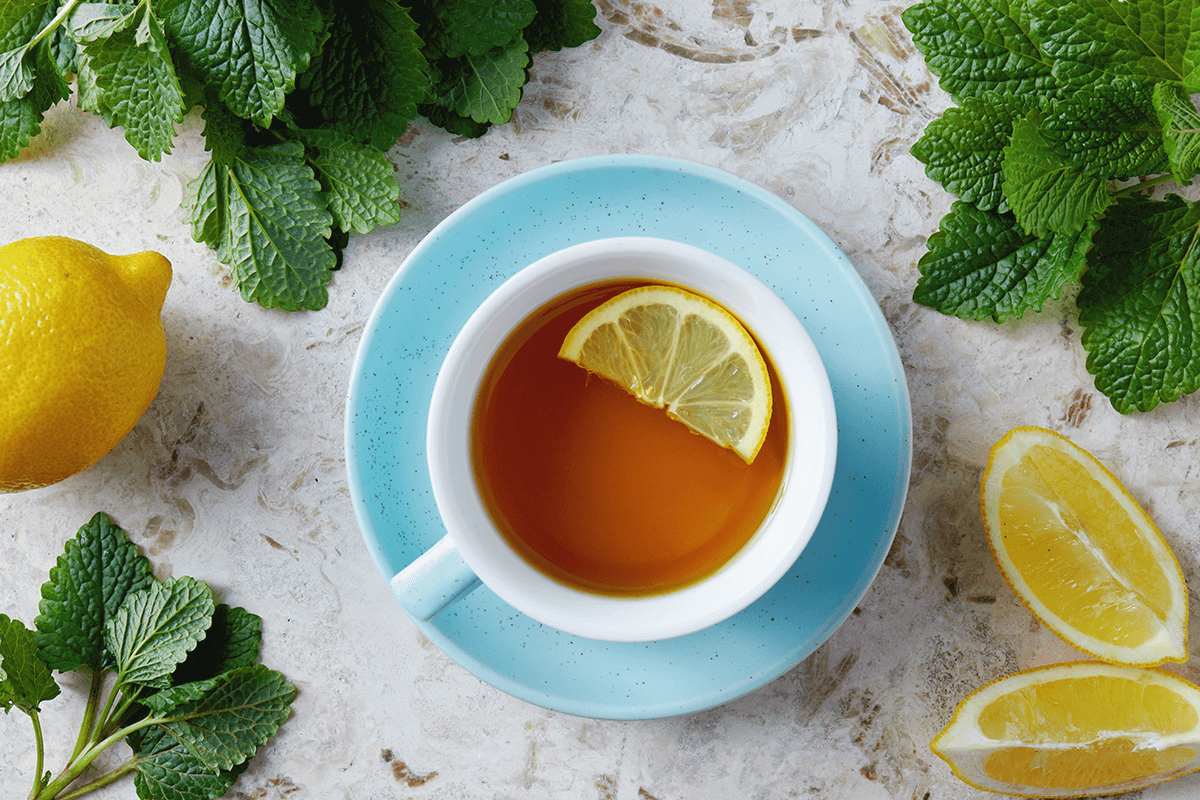Natural Stress Relief: Best Strategies and Supplements for Stress Management
Written by Laura Dan, BSc, NDTR
Stress is the body’s natural response to change and is an unavoidable part of life. This response may be triggered by emotions, day-to-day situations, or environmental factors, such as air pollution and climate. (25) Not all stress is bad; in fact, short-term (acute) stress can help protect you from dangerous threats and trauma. (12) It’s important for long-term (chronic) stress to be managed as it can have detrimental effects on mental and physical health.
While you can’t eliminate stress from your life, you can mitigate its effects on your physical and mental health by using stress management techniques and certain supplements. Continue reading to learn more about stress and which evidence-based natural interventions can help to reduce the effects of stress.
Different kinds of stress
According to the American Psychological Association, we experience three different kinds of stress: acute stress, episodic acute stress, and chronic stress. Each type of stress has distinct characteristics, symptoms, duration, and treatment approaches. (3)
Acute stress
Of the three types of stress, acute stress is the most common form.. It’s your body’s immediate reaction to something new — triggering your fight-or-flight response. Examples of acute stress triggers include being stuck in traffic, public speaking, or engaging in an argument. (16)
Episodic acute stress
When acute stress happens frequently, it’s called episodic acute stress. Individuals experiencing episodic acute stress are often described as being anxious or irritable. They may take on too many responsibilities at one time and may struggle with organization and time management. (16)
Chronic stress
If acute stress isn’t managed well and occurs for an extended period of time, it becomes chronic stress. Chronic stress can be caused by a number of situations, such as relationship issues, financial struggles, or a stressful job. Chronic stress may be difficult to identify, often because it becomes a normal part of life. (16)(12)
Signs of stress
Stress can significantly impact your quality of life, so it’s important to recognize and address stress early on.
Physical signs of stress
- Change or decrease in libido
- Chest pain
- Digestive problems and upset stomach
- Dry mouth
- Fatigue
- Headaches
- Jitters
- Muscle pain or tension, including neck or back pain
- Rapid heartbeat
- Skin irritations
- Trouble sleeping (14)(37)(34)
Mental and emotional signs of stress
- Anger
- Anxiety
- Feeling overwhelmed
- Forgetfulness
- Irritability
- Lack of focus
- Lack of motivation
- Restlessness
- Sadness or depression (34)
Behavioral signs of stress
Stress can manifest itself in many different ways, including headache, irritability, and lack of appetite.
How stress affects your health
There’s a good chance stress is affecting your health in ways you don’t realize. You may think decreased productivity at work, trouble sleeping, anger, headaches, and your frequent trips to the bathroom are separate issues, but in reality — they are all common signs and symptoms of stress.
Over time, chronic stress can lead to serious health issues, including depression, heart disease, diabetes, and high blood pressure. (26) Chronic stress can weaken the immune system, making you more susceptible to illness. (24) Stress can also impair functions of the gastrointestinal system, leading to poor motility, increased gut permeability, or disrupted gut microbiota. (20)
Did you know?
If left unchecked, chronic stress can contribute to a range of health problems, such as heart disease, obesity, diabetes, lung disease, high blood pressure, and even cancer. (23)
5 natural ways to reduce stress and anxiety
No matter what type of stress you are dealing with, you can use the following natural strategies to lower your stress levels. (3)
1. Try meditation and other relaxation techniques
Meditation, mindfulness, and breathing exercises can help minimize feelings of stress and anxiety. Meditation has also been shown to lower high blood pressure, reduce resting heart rate, and decrease the body’s stress hormone, cortisol. (29) Not sure where to start? Set aside a few minutes each day to simply focus on your breathing without external distractions or try listening to a guided meditation exercise online.
2. Unplug from your devices and connect with nature
Technology is entwined with our daily lives, but too much screen time can lead to increased stress and feelings of anxiety. (19) Step away from your computer or phone at regular intervals throughout the day. Spending time outdoors offers numerous health benefits, including improved mood and reduced stress levels. Can’t escape into nature? Research suggests that simply looking at photos of nature can help improve your mood. (13)
3. Plan ahead and prioritize tasks
Set time each week to plan out daily tasks and upcoming events. Keeping yourself organized can limit unnecessary stress. Find strategies that work best for you, whether that’s using a mobile app or keeping a paper planner to efficiently manage your schedule.
4. Talk to friends and family
Staying connected with family and loved ones can improve resilience to stress and contribute to effective coping strategies. (27) Population groups across the world with the highest concentrations of centenarians, known as “Blue Zones,” prioritize family and social circles, which suggests that social connection plays a role in longevity and overall health. (9)
5. Stay active and exercise
Participating in physical activity can improve your stress resilience. (11) During exercise, the body releases chemicals such as endorphins, which can improve mood and reduce anxiety. (5) Adults should participate in at least 150 minutes (2.5 hours) of moderate-intensity exercise each week to reap the many health benefits exercise offers. (31)
7 supplements to help manage and reduce stress
If you experience symptoms of stress, certain supplements may be able to help. Here is a list of seven nutrients and botanicals that have been shown to help naturally manage stress and anxiety.
1. Ashwagandha
Ashwagandha is extracted from the roots of an evergreen shrub native to India and Southeast Asia. (7) This increasingly well-known herb demonstrates a range of health benefits, including being a safe and well-tolerated natural stress remedy. (10) Ashwagandha mitigates stress by lowering elevated levels of cortisol in the body. (10) Additionally, ashwagandha may improve several sleep parameters, including total sleep time and sleep quality, for those suffering from insomnia often triggered by stress and anxiety. (21)
2. Chamomile
Chamomile has long been used as a mild sedative to promote calmness and ease feelings of anxiety. (4)(15) Chamomile may improve moderate-to-severe symptoms associated with a generalized anxiety disorder (GAD), one of the most common chronic psychological disorders. (22) Furthermore, vaporized essential oils extracted from chamomile flowers may help relieve anxiety. (15)
3. Lemon balm
Lemon balm has been shown to reduce feelings of anxiety and promote well-being. (28) One study found that supplementing with lemon balm for eight weeks resulted in a significant reduction in symptoms of depression, anxiety, and stress. (17)
Drinking a beverage infused with lemon balm can help lower your stress and anxiety levels. (28)
4. L-theanine
L-theanine, an amino acid found in green tea, has been shown to have calming effects. A meta-analysis of nine peer-reviewed articles concluded that L-theanine supplementation reduces stress and anxiety in individuals experiencing stressful situations. (36) One study showed that perceived stress was significantly reduced one hour after supplementation and cortisol levels decreased after three hours. (35)
Did you know?
Low-caffeine green tea can improve sleep quality in middle-aged and elderly individuals by suppressing stress. (32)(33)
5. Magnesium
Magnesium has been shown to reduce feelings of anxiety and stress. Approximately 68% of North Americans don’t intake enough daily magnesium, which is associated with increased feelings of stress and anxiety. Under acute stress, the body excretes increased levels of magnesium through the urine. Supplementing with magnesium can help maintain adequate magnesium levels and support the stress response. (8)
6. Valerian root
Valerian root, most commonly used for its sedative effects to improve sleep, has also been found to reduce both physical and psychological symptoms of stress. (6) One of the compounds in valerian root extract, valerenic acid, has a tranquilizing effect and contributes to a calm state of mind by preventing the breakdown of gamma-Aminobutyric acid (GABA) in the brain. (18) GABA is an inhibitory neurotransmitter responsible for blocking impulses between nerve cells in the brain. Low levels of GABA are associated with increased anxiety. (1)
7. B vitamins
If you struggle with high levels of stress, B vitamins, most significantly B6, B9, and B12 may help alleviate your symptoms. (30)(38) Vitamin B complexes have a variety of scientifically-proven benefits when taken daily, including combating depression, anxiety, and the effects of work-related stress. (30)
Taking supplements and vitamins can make for an easy, cost-effective method for managing stress.
The bottom line
The key to managing stress is to pay attention to your body, mood, and behavioral warning signs listed above. Chronic stress can take a toll on your health, but there are a number of strategies you can incorporate into your daily routine to help manage your stress. Certain nutrient and botanical ingredients can also be helpful in managing stress. Before making changes to your treatment plan, consult an integrative healthcare practitioner for recommendations specific to your needs.





